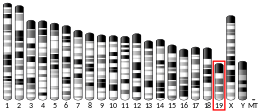RTN3
gène de l'espèce Homo sapiens
Le RTN3 est une protéine appartenant à la famille des réticulons. Son gène RTN3 est situé sur le chromosome 11 humain.
| RTN3 | |||||||||||||||||||||||||||||||||||||||||||||||||||
|---|---|---|---|---|---|---|---|---|---|---|---|---|---|---|---|---|---|---|---|---|---|---|---|---|---|---|---|---|---|---|---|---|---|---|---|---|---|---|---|---|---|---|---|---|---|---|---|---|---|---|---|
| Identifiants | |||||||||||||||||||||||||||||||||||||||||||||||||||
| Aliases | RTN3 | ||||||||||||||||||||||||||||||||||||||||||||||||||
| IDs externes | OMIM: 604249 MGI: 1339970 HomoloGene: 24934 GeneCards: RTN3 | ||||||||||||||||||||||||||||||||||||||||||||||||||
| |||||||||||||||||||||||||||||||||||||||||||||||||||
| |||||||||||||||||||||||||||||||||||||||||||||||||||
| |||||||||||||||||||||||||||||||||||||||||||||||||||
| |||||||||||||||||||||||||||||||||||||||||||||||||||
| |||||||||||||||||||||||||||||||||||||||||||||||||||
| Wikidata | |||||||||||||||||||||||||||||||||||||||||||||||||||
| |||||||||||||||||||||||||||||||||||||||||||||||||||
Structure et rôles
modifierIl possède deux domaines transmembranaires, interagissant avec la protéine BACE1[5] en inhibant son activité[6]. Il intervient dans la formation des formes tubulaires du réticulum endoplasmique[7].
En médecine
modifierIl intervient dans le dépôt de plaques amyloïdes par l'intermédiaire de son action sur le BACE1[6], et de neurites dystrophiques lors de la maladie d'Alzheimer[8].
Il interagit avec l'Hsp70, favorisant l'obésité et l'accumulation de triglycérides[9].
Notes et références
modifier- GRCh38: Ensembl release 89: ENSG00000133318 - Ensembl, May 2017
- GRCm38: Ensembl release 89: ENSMUSG00000024758 - Ensembl, May 2017
- « Publications PubMed pour l'Homme », sur National Center for Biotechnology Information, U.S. National Library of Medicine
- « Publications PubMed pour la Souris », sur National Center for Biotechnology Information, U.S. National Library of Medicine
- He W, Shi Q, Hu X, Yan R, The membrane topology of RTN3 and its effect on binding of RTN3 to BACE1, J Biol Chem, 2007;282:29144–29151
- Shi Q, Ge Y, Sharoar MG, He W, Xiang R, Zhang Z, Hu X, Yan R, Impact of RTN3 deficiency on expression of BACE1 and amyloid deposition, J Neurosci, 2014;34:13954–13962
- Sharoar MG, Shi Q, Ge Y, He W, Hu X, Perry G, Zhu X, Yan R, Dysfunctional tubular endoplasmic reticulum constitutes a pathological feature of Alzheimer’s disease, Mol Psychiatry, 2016;21:1263–1271
- Prior M, Shi Q, Hu X, He W, Levey A, Yan R, RTN/Nogo in forming Alzheimer’s neuritic plaques, Neurosci Biobehav Rev, 2010;34:1201–1206
- Xiang R, Fan LL, Huang H et al. Increased reticulon 3 (RTN3) leads to obesity and hypertriglyceridemia by interacting with Heat Shock Protein Family A (Hsp70) member 5 (HSPA5), Circulation, 2018;138:1828–1838




